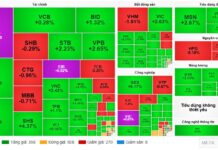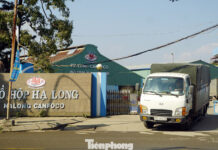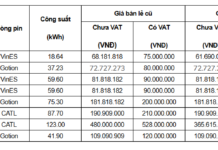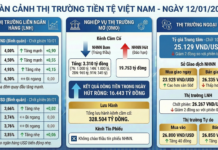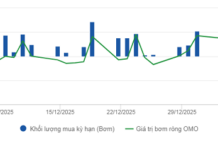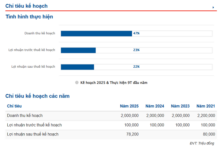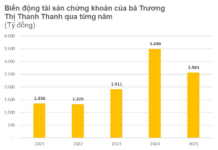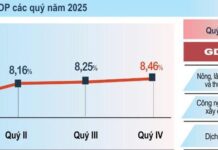It’s not uncommon to come across enticing advertisements on real estate websites, such as “Urgent sale due to financial need…”, “Emigrating, quick sale…”, or “Bank foreclosure, selling at a loss…”. However, these deals often prey on unsuspecting, uninformed, or bargain-seeking individuals.
Burdened by Debt after Falling for a Scam
Unlike those who are aware of the tricks used by these “baiters,” Ms. H. (from Ho Chi Minh City) fell victim to their tactics. In May 2023, she was lured by two real estate agents from Dai Dien Khang Company, named Quan and Nhu Phuong, to view a project in Phuoc Tan town, Long Thanh district, Dong Nai province (a fictitious address). Upon arrival, she was unaware of her exact location but was enticed by a lucky draw organized by the company, where she won a Honda SH scooter.
“They persuaded me to pay 200 million VND for a 300 million VND discount on the land purchase. The company also introduced a woman named Kim Thanh, who agreed to buy the land from me on the condition that I had a red book (land title). Believing that buying land with a title would result in immediate profit, I agreed to purchase a plot in An Vien for 2.59 billion VND, which Ms. Kim Thanh promised to buy back for 2.8 billion VND,” Ms. H. recounted.
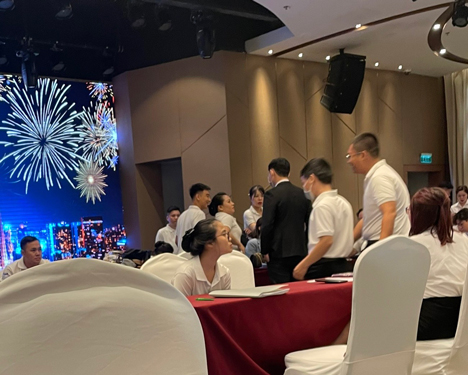
These events are often held in large conference centers and hotels to trap potential buyers.
When Ms. H. mentioned not having enough money, Ms. Quynh Nhu, who introduced herself as the floor director, suggested she take out a loan from the International Bank (VIB) on Lac Long Quan Street, District 11, Ho Chi Minh City. However, due to her low pension, Ms. H. did not meet the loan requirements and had to ask her son to mortgage their house in Binh Thanh District.
“I thought that by taking out the loan, I could sell the land to Ms. Kim Thanh and make a 300 million VND profit,” she said. Unfortunately, two months after the bank disbursed the loan, and the money was transferred to the account of the director of Dai Dien Khang Company, Mr. Luong Quoc An, Ms. H. was informed that Ms. Kim Thanh had backed out of the deal. Moreover, the promise of introducing a buyer and offering a 440 million VND discount after full payment also fell through. It was only then that Ms. H. realized that Mr. Luong Quoc An was just an agent authorized by Mr. Phan Thong Nhat, the land owner, and would receive a commission of 1.1 billion VND.
At this point, Ms. H. still had no idea where the land she purchased was located. She tried to visit the company’s transaction offices at 7 Nguyen Van Vinh and 12A Ba Vi, Ward 4, Tan Binh District, only to find that both branches had closed and vacated the premises. Her attempts to contact those who had promised to help her sell the land were also unsuccessful.
As of now, Ms. H. is still burdened by a 2.5 billion VND debt and a mortgaged house. Her family has to scrape together 40 million VND every month to repay the loan, despite her pension being just over 5 million VND.
As of August 5, Ms. H. shared that she had finally managed to get in touch with Mr. Luong Quoc An after more than a year of purchasing the land. He promised to resolve the issue but did not provide any specifics before hanging up. Ms. H. is now desperate to sell the land to repay her debt to the bank.
Our investigation revealed that Dai Dien Khang Real Estate Joint Stock Company, with Mr. Luong Quoc An as its legal representative, is headquartered at 12A Ba Vi, Ward 4, Tan Binh District.
A Persistent Problem
Explaining why scams and fraud in the real estate market persist despite the authorities’ efforts to crack down on such cases, Mr. Tran Khanh Quang, CEO of Viet An Hoa Real Estate Company, pointed out that the Vietnamese real estate market has long been fraught with issues. While investment project procedures are stringent, the process of buying and selling land is relatively simple, requiring only the agreement of both parties to notarize the transaction. In some cases, buyers don’t even know the location of the land they’ve purchased. This loophole provides an opportunity for dishonest and fraudulent individuals to take advantage.
Mr. Quang also attributed the problem to the buyers’ negligence. In the case of Ms. H., she signed the land purchase contract and transferred the money at the bank without knowing the exact location of the land.
“Ms. H. had the capacity to discern right from wrong and was fully aware of her actions. Moreover, she even asked her son to sign the bank loan contract, so it’s hard to believe that she didn’t have time to think things through before making such a significant decision,” Mr. Quang analyzed.
To mitigate this issue, Mr. Quang suggested that regulatory agencies closely monitor real estate businesses through a clear legal framework. Additionally, buyers should have easy access to all relevant information about the property they intend to purchase. To achieve this, the government needs to establish a comprehensive real estate management system, which Vietnam currently lacks. “For now, if there is a public service that can handle all the legal procedures related to real estate, I believe the Vietnamese real estate market will become healthier, reducing the chaotic and disorderly transactions prevalent today,” he added.
According to lawyer Nguyen Phuong Lien from SENLAW Law Firm, scams in the real estate market are prevalent, and the tactics used are increasingly sophisticated. Fraudsters operate under the guise of real estate brokerage or investment companies, employing hundreds of staff and organizing large-scale events to lure unsuspecting victims. As real estate is a high-value asset, falling into their trap can result in significant losses for the victims.
“Common tactics include false advertising; offering attractive gifts or significant discounts to attract buyers; using fake buyers or ‘decoys’ to create a sense of competition and pressure on the buyer; staging multiple buyers to drive up prices; exaggerating investment profits; and pressuring the ‘prey’ to make quick decisions to avoid missing out on opportunities,” Lawyer Lien explained.
The new Real Estate Business Law, which took effect on August 1, 2023, clearly prohibits certain acts in the real estate business, including: operating without meeting the necessary conditions; falsifying documents or deliberately misrepresenting information about real estate or projects; failing to disclose information about real estate or projects as required by law; engaging in fraud, deception, or dishonesty in real estate transactions; and failing to fulfill financial obligations to the state. Notably, the law also prohibits the “use of real estate brokerage certificates in a manner contrary to the provisions of the law on real estate business.” These regulations are expected to curb the deceptive practices of fraudulent individuals and organizations.
(*) See the article in Nguoi Lao Dong Newspaper from August 6, 2023, for more details.
Impact on Legitimate Businesses
The director of a real estate brokerage company in the suburbs shared that his company operates legitimately but has been significantly affected by dishonest companies. He mentioned that these fraudulent companies often use attractive promotions to exploit the greed of customers and investors. They lure them with promises of reselling at higher prices or finding buyers, only to renege on their promises later. Some companies advertise extremely low prices for real estate, but this usually only applies to the initial deposit, with the actual purchase price being much higher. Once the transaction is completed, these individuals will try to erase their traces and deny any wrongdoing.
Precautions when Buying Real Estate

